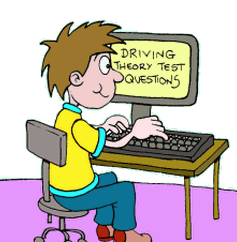What causes accidents: junctions
An alarmingly high proportion of accidents happen in and around junctions.
This is because of the combination of busy roads, traffic that can be nose to tail and people crossing all sorts of different paths, combined with impatience and perhaps tiredness, means that some vehicles either drive aggressively, get confused by road markings, or simply make mistakes: all of these mean that junctions are definitely an accident hot spot.
Particularly where there are lights and filter lanes you get all sorts of weird and wonderful behaviour. Some people get confused by filter lights and go straight ahead when in fact say only the left filter comes on. Others will think they can go and turn straight away and cut across traffic going straight ahead, whilst if there is a vehicle close behind you pushing the lights or a cyclist in the road then there are so many potential hazards to consider.
Therefore you should always pay particular attention around junctions.
Go a little more slowly than you would normally in usual conditions because this will give you more time to react when something unexpected happens.
An additional complication is that there are often pedestrians around in some junctions and therefore whether they will cross a road or not that you are about to turn into can cause accidents because other drivers will make different assumptions about how you will behave, and this then impacts their road position and speed too.
Finally, when you need to turn across approaching traffic, make sure you only do so when safe. Although you might feel pressured by causing cars to wait behind you, you should only turn when it is safe to do so and not try and cut in front of an approaching car where the margin is really too tight.
Related Articles...
Oil in your car and oil pressure
Oil is not something that you might think is essential to the operation of a car, but infact it is. Oil acts as a lubricant for the moving parts such as the moving parts of the engine, and it is...
Being aware of potential hazards
Having the maximum time possible to react to hazards is important and can be the difference between an awkward situation or even an accident and continuing safe driving.
This requires you not...
Your legal obligations as a driver
There are some basics that everyone knows when it comes to being able to behind the wheel of a vehicle. These are of course meeting the legal eyesight requirements, being older than the minimum age...
Thinking about a greener car
It is interesting to note that a signficant amount of the greenhouse gas emissions of the entire country comes from simply car travel: noticeably over 10% does.
Therefore if you have a type of...
Rules for learner drivers
The minimum ages and restrictions vary from one type of vehicle to another.
When you are learning to drive, you must ensure that the vehicle you are learning to drive in is roadworthy and also...
Hazard Perception
There has been a significant increase in the focus of hazard perception and hazard awareness in the last few years since the introduction by the DSA of a separate hazard perception element to the...
Rules regarding the use of seat belts
When it comes to seat belts, you should be certain of what the rules are with regard to seat belt usage, and your responsibilities as the driver in terms of other passengers in your vehicle and...
Tips on passing your theory test
It is up to each individual who takes a theory test to do the necessary work and preparation to put themselves in the best position to pass the test.
Rather than attempting to 'cram' the night...
When you must not stop when driving
The regulations relating to stopping article looks at when you must stop, now it is time to look at when you must not stop as a driver...
There are times when you need to stop, but also many...
Mock Driving Theory
On our Mock Driving Theory page you can practice no fewer than fifteen different mock tests.
Each of them...
Back to home page of driving theory test questions

